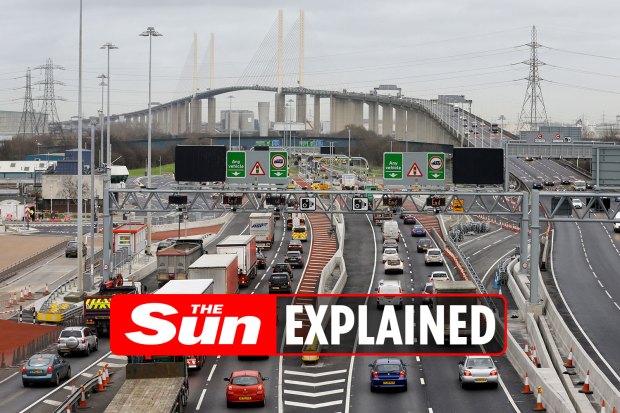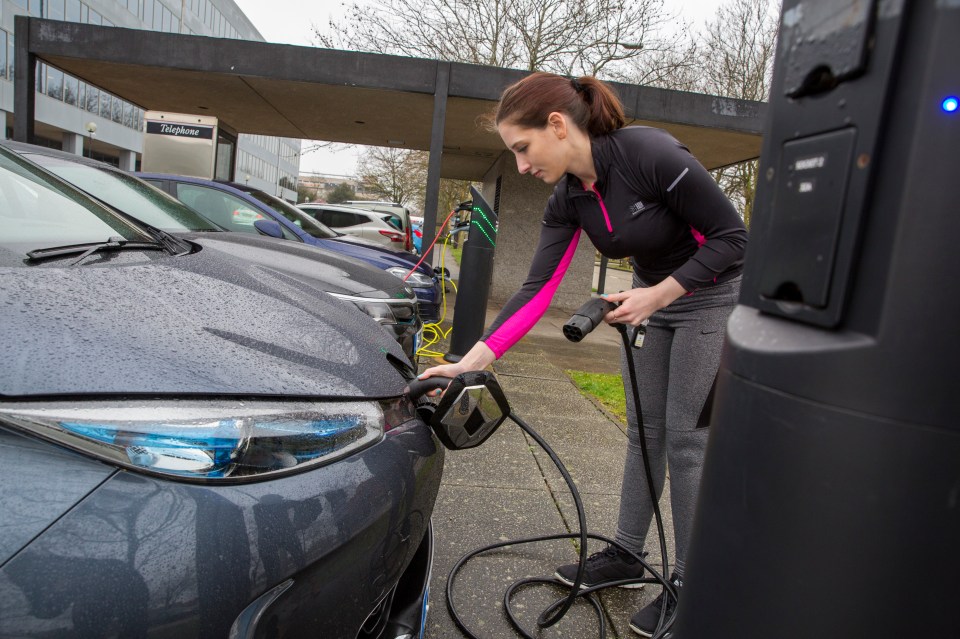Seven huge changes for drivers under new government plans – including cash grants to buy electric cars

DRIVERS face massive changes under new government plans to make motoring more eco-friendly.
The Prime Minister has announced a massive strategy to reduce emissions on our roads, which includes incentives for Brits to buy electric cars.
And while many of the plans outlined in the government’s strategy relate to industry, aviation and other business sectors, there’s a lot at stake for the ordinary motorist too.
The Net Zero strategy outlines how the UK can begin to produce no more greenhouse gases than it removes, both by emitting less pollution and by cancelling it out using other means.
The 2050 deadline for this seems very distant, but a lot of the changes are already beginning to kick in.
You can keep your car
One of the government’s key principles is that it will “work with the grain of consumer choice”.
In the case of transport specifically, the government pledges that “no one will be required to scrap their current car”.
Scrappage schemes, which incentivise car owners to scrap their older, more polluting cars in exchange for money towards a newer, cleaner model, have been used for years.
They're likely to be used again on either a national or local level.
But the government’s assurance that scrapping petrol or diesel cars will not be mandatory will be a relief to people who can not or will not switch to EVs.
No more new petrol or diesel cars
However, that doesn’t mean that the current crop of petrol, diesel and hybrid cars will always be on sale.
The government has confirmed its plans to ban the sale of any petrol or diesel car from 2030 and any hybrid car from 2035.
All cars from 2035 will be zero-emission, which means that they will either be battery-electric or hydrogen fuel cell vehicles.
Most read in Motors
Car manufacturers will be given a zero-emission mandate. This means that a certain percentage of all their sales will need to be zero-emission vehicles from the year 2024.
From 2040, the zero-emission rules for cars will extend to motorcycles and lorries too.
Many people's final visit to a petrol station will take place at some point in the next ten years.
Plug-in vehicle grants
The switch to electric vehicles is likely to be expensive, especially in relation to the relative cheapness of second-hand petrol and diesel cars.
The government has pledged to support the roll-out of electric vehicles with £620m of funding.
This money will go towards “targeted” plug-in vehicle grants, which are expected to apply for households buying cars as well as businesses buying vans.
Cars and vans currently contribute around a fifth of domestic emissions, and transport in general represents over a quarter.
Phasing out the most harmful - fossil fuel powered internal combustion engines - is a priority under the UK Net Zero strategy.
More on-street chargers
Electric cars are easy to charge at home if you have your own driveway and can install a charger on your property.
But if like millions of British households you don’t have access to your own drive, this doesn't help you make the switch.
The government's plan involves a "focus on local on street residential charging".
This will enhance the viability of urban and suburban households switching to electric vehicles without having their own dedicated driveway and charging infrastructure.
Switch to hydrogen
The Government’s strategy includes plans to scale-up production of hydrogen, and has outlined ways to introduce this greener energy source to several sectors - including transport.
These plans include a £20m investment in zero-emission freight vehicles.
Hydrogen fuel cell vehicles emit pure water at the tailpipe and take only a few minutes to fully charge, giving them a range of several hundred miles.
Hydrogen fuel cell cars will continue to be available and will enjoy the same benefits as battery-electric models.
There are few hydrogen filling stations in the UK, but this - as well as the supply of clean hydrogen - will increase under the Net Zero strategy.
Carpool lanes
A car travelling with two people in it is less carbon-intensive than two people driving two separate cars.
The government has pledged to "take action" to increase average road vehicle occupancy by 2023.
The average car and van occupancy is around 1.6 in England. This figure has been pretty steady for decades.
Expect carpool lanes and other measures to encourage multi-person car occupancy over the next few years.
Replacing fuel duty
Switching to electric vehicles means that the government will lose one of its key incomes - tax on fossil fuels.
At the moment, UK motorists pay around 58p in fuel duty for every litre of petrol or diesel they buy at the pump.
Depending on the size of your tank, that’s around £20 every time you fill up.
But as Britain switches to electric vehicles - which don’t need petrol or diesel - this revenue stream will begin to shrink.
Today, the combination of fuel duty and “vehicle excise duty” (known colloquially as road tax) generates around £37bn for the government.
That’s around 1.7% of our GDP.
Along with a number of other “carbon-intensive” revenue streams, income from VED and fuel duty is expected to decrease to zero by 2050.
Read More on The Sun
This means that the shortfall will have to be made up for somehow, possibly with plans such as pay-per-mile road pricing.
“The transition has implications for current and future taxpayers,” warns a Treasury report on the UK Net Zero strategy.
We pay for your stories!
Do you have a story for The Sun Money team?
Email us at money@the-sun.co.uk














